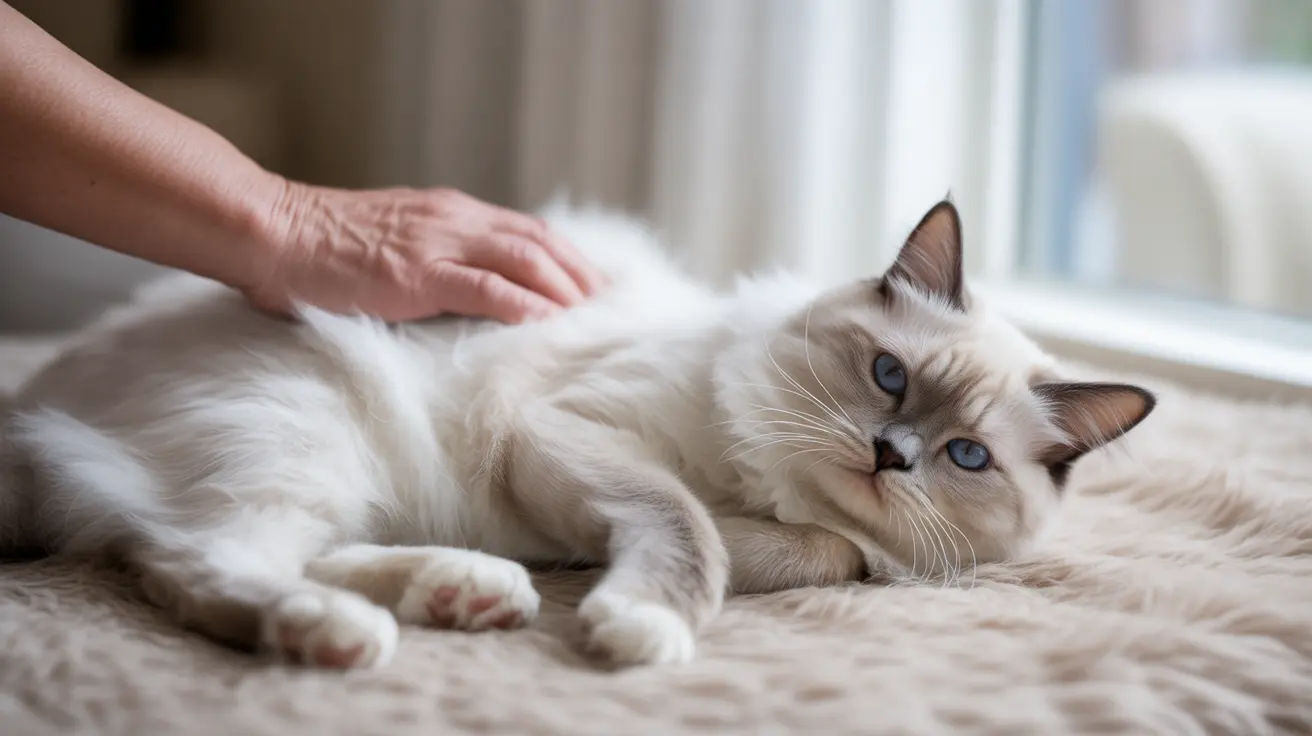Signs That Indicate It May Be Time to Consider Euthanasia
Several key indicators suggest your cat's quality of life has significantly declined due to CHF:
Respiratory Distress
- Persistent labored breathing that doesn't improve with medication
- Frequent open-mouth breathing
- Regular episodes requiring emergency veterinary care
- Blue or gray gums indicating poor oxygen levels
Mobility and Activity Changes
- Severe lethargy or inability to move comfortably
- Loss of interest in previously enjoyed activities
- Difficulty finding comfortable resting positions
- Paralysis from blood clots (thromboembolism)
Eating and Comfort Indicators
- Complete loss of appetite lasting multiple days
- Significant weight loss despite treatment
- Persistent vomiting or gagging
- Unable to rest or sleep comfortably
Treatment Options and Their Effectiveness
Before considering euthanasia, it's important to understand available treatments and their limitations:
- Medications (diuretics, ACE inhibitors, beta-blockers)
- Oxygen therapy
- Fluid drainage procedures
- Dietary modifications
When these treatments no longer provide relief or require increasingly frequent interventions, it may indicate that the disease has progressed beyond effective management.
Quality of Life Assessment
Consider these factors when evaluating your cat's quality of life:
- Ability to perform normal daily activities
- Response to treatment and medications
- Frequency of good days versus bad days
- Level of interaction with family members
- Signs of pain or distress
- Overall happiness and comfort
Making the Decision
The decision to euthanize should involve careful consideration of:
- Veterinary recommendations
- Your cat's current suffering level
- Treatment effectiveness
- Financial and emotional capabilities for ongoing care
- Your cat's overall prognosis
Frequently Asked Questions
What are the most common signs of congestive heart failure in cats that indicate a need for veterinary care?
The most common signs include labored breathing, coughing or gagging, lethargy, loss of appetite, and exercise intolerance. Any breathing difficulties warrant immediate veterinary attention.
How can I tell when my cat with congestive heart failure is suffering and it might be time to consider euthanasia?
Signs of suffering include persistent respiratory distress, frequent emergency visits, inability to rest comfortably, complete loss of appetite, and lack of response to medications. Multiple episodes of severe breathing difficulty often indicate it's time to consider euthanasia.
What treatment options are available to manage congestive heart failure in cats, and how do I know if they are no longer effective?
Treatment typically includes medications like diuretics, ACE inhibitors, and beta-blockers. When cats require increasingly frequent emergency interventions or show minimal improvement despite aggressive treatment, it may indicate treatments are no longer effective.
How is euthanasia performed in cats with congestive heart failure, and are there options for in-home euthanasia?
Euthanasia involves administering a sedative followed by a medication that peacefully stops the heart. Many veterinarians offer in-home euthanasia services, allowing cats to remain in familiar surroundings with their loved ones.
What quality of life factors should I monitor in my cat with congestive heart failure to decide when end-of-life care is appropriate?
Monitor breathing effort, appetite, mobility, interaction with family, comfort levels, and response to medication. Track good days versus bad days, and watch for signs of persistent discomfort or distress despite treatment.
The decision to euthanize a cat with congestive heart failure is deeply personal and should be made in consultation with your veterinarian. Remember that choosing euthanasia when quality of life has significantly declined is often the most loving decision you can make for your feline companion.






